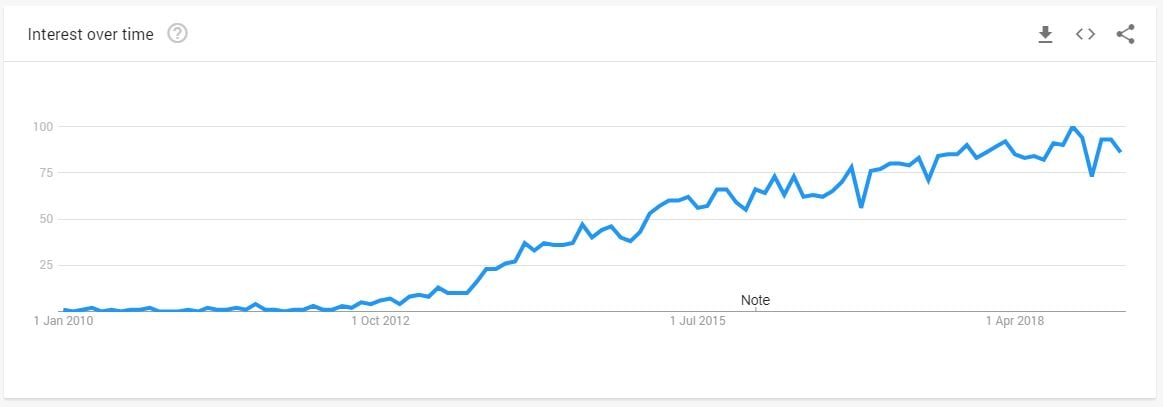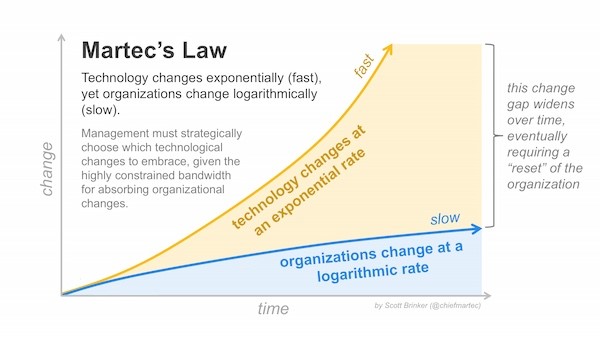Do a quick Google search for ‘growth hacking’ and you’ll get back over 53 million results….once the buzz word de jour for start-ups - with companies such as Facebook, Slack, AirBnB et el having enjoyed unprecedented, exponential growth through the use of growth hacking tactics the term it seems - is here to stay.

Originally coined in 2010, the trend initially gained popularity among Silicon Valley start-up companies and tech-savvy business professionals trying to advance their marketing performance at breakneck speed, before spilling out in to the mainstream vernacular.
 Source: Google Trends, Growth Hacking 2010 to 2019
Source: Google Trends, Growth Hacking 2010 to 2019
We owe the term to Sean Ellis, the leading authority on Growth Hacking due largely to having led the exponential growth at Dropbox, LogMeIn, Lookout, and Eventbrite (no biggie) as well as having written (with co-author Morgan Brown) the book on the subject and giving us the freshly minted phrase in a blog post.
 Sean Ellis: the OG (Original Growth-hacker)
Sean Ellis: the OG (Original Growth-hacker)
His oft-cited definition of a growth hacker is “a person whose true north is growth. Everything they do is scrutinized by its potential impact on scalable growth.”
Growth hacking says Wikipedia is “a process of rapid experimentation across marketing funnel, product development, sales segments, and other areas of the business to identify the most efficient ways to grow a business.”
It’s all about iterative experimentation and trying new things, monitoring, analysing and tweaking.
MUST READ: The Trouble With Dashboards
A polarising topic
Perhaps it’s through a lack of understanding, perhaps it’s the buzz-wordery, or perhaps – understandably – it’s the frustrations at seeing it incorrectly applied/slapped undeservingly on every other LinkedIn bio….whatever the reason, the words growth hacking can incite much eye rolling.
It’s been argued that growth hacking and it’s frenetic, iterative testing lacks true strategic direction, it’s been called the ‘get-rich-quick-scheme’ of marketing. Growth hacking isn’t a one-size fits all solution and it shouldn't be applied haphazardly by one and all. However if you understand that growth hacking requires persistence, creativity, controlled experimentation, extreme focus on data, a willingness to take risks - and should be executed in line with an overarching marketing strategy therein lies great opportunity for rapid growth.
Fast forward to 2019 and growth hacking while it still has its haters - now enjoys widespread recognition amongst start-ups as a vital technique in the digital marketing bag of tricks.
Thinking small, achieving big
There are many organisations which are struggling to stay up to date in a rapidly changing technological environment - a challenge perhaps best illustrated by Scott Brinker’s ‘Martec’s Law’;

Source: chiefmartec.com
Yet E-consultancy’s Ashley Friedlein counts the adoption of growth hacking by larger organisations as one of his digital transformation trends of 2019.
...expect to see ‘growth marketing/hacking’ escape the world of start-ups and become adopted also by larger organisations."
With paid marketing getting only more expensive, AI, voice search and conversational marketing knocking on our doors, marketers are facing new challenges - and will be required to get more creative in their growth efforts – so will thinking like a small business help these big businesses achieve big results?
Share your thoughts below!
